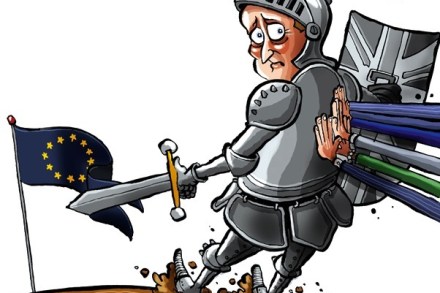Labour reach out to the Lib Dems (again)
Others have already been there, but it’s still worth noting Douglas Alexander’s article for the lastest issue of the New Statesman. Much of it, it’s true, is a predictable attack on David Cameron’s recent activity in Brussels. But slightly more surprising is the fact that, rather than criticising the coalition in toto, Alexander saves his ire for the Tories and reaches out to the Lib Dems. Here’s the relevant passage: ‘The roots of what happened on the night of Thursday 8 December lie deep in Cameron’s failure to modernise the Tory party. Just because he puts party interest before the national interest, there is no reason others should do the


















